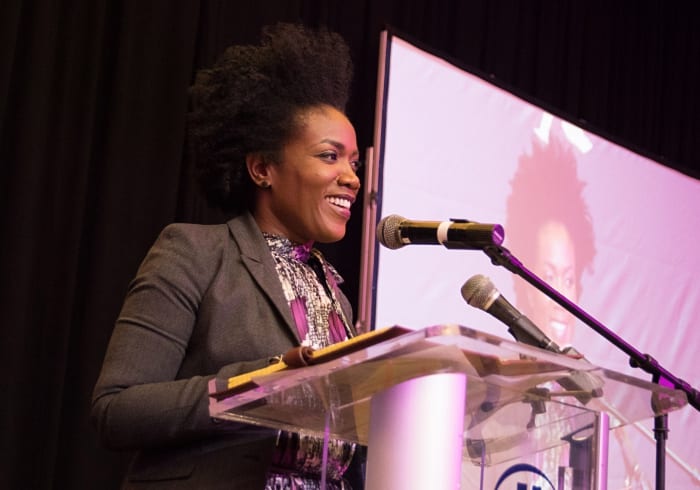
A frank conversation on the world’s capacity to respond to COVID-19, particularly the global norms of public finance and how to measure an economy’s health, is needed.
This was emphasised by Minister in Economic Affairs and Investment, Marsha Caddle, while addressing the virtual 51st Annual Meeting of the Board of Governors of the Caribbean Development Bank, last week.
She told participants: “If I have a contraction in my GDP such that my debt to GDP skyrockets, is it fair or does it make sense to continue to use debt to GDP to drive everything that we do, in all our analysis?”
The Minister, who discussed the impact of COVID-19 as well as responses to the impact, building forward and building out broadly for resilient recovery, stressed that among other things, there first had to be investments in skills and total education reform in the Caribbean.
Alluding to education, she noted the island had begun a partnership with Coursera that offered thousands of courses to Barbadians, free of charge, and this was in recognition of the demand among the population to enhance their skills.
She stated that in this regard, focus was being placed on micro-credentialing, pointing out that while Government was pleased to be able to return free tertiary education for Barbadians, and this was important, many young people would not choose university because it may not be immediately relevant or necessary for the jobs in which they were interested, and wanted to access now.
“There is a huge segment of the population that is not inclined, not motivated, not incentivised…to go and sit at UWI …getting certain qualifications. Micro-credentialing is the way of the future because a lot of what is needed to drive the new economy does not require three and four-year degrees. It requires a different kind of skill,” Ms. Caddle stated.
She continued: “We also find that skills like financial literacy have to be embedded in the curriculum. We are now realising that one of the reasons we are seeing such under-investments, in terms of people using their savings to invest actively, is that a lot of people do not understand investment and how they can remove their savings from earning 0.01 per cent in the bank and invest it in more productive things.”
Expressing the hope that there would be some investment in the region in growth and resilience bonds, Minister Caddle hinted this would come if we are able to structure those kinds of instruments to use local and regional savings to invest in development and resilience.
Barbados’ modernisation and digitilisation effort was also identified as a second response to the crisis. Suggesting it was not only the public sector that needed to be better at ‘doing business’, she explained: “We have a new national payment system; we had to have strong collaboration with the private banking system for that, and we both, Government and the private banking system, had to get more flexible in terms of how we do business and we have been able to meet great success with that.
“Our digital ID project, where Barbadians would be able to present one time to any government department and have a single identifier that can take them throughout [a range of government] services, that’s very important. And, our modernisation programme we see as one of the blocks to building forward in a more resilient way.”
A related issue, Ms. Caddle further highlighted, was the predictability in the investment climate through Barbados doing business reforms.
Acknowledging that much energy had gone into making sure there was a whole-of-government reform to doing business, she said it was sometimes just about having a simple, first principles conversation on issues such as ‘Why are we doing this?’ and ‘How can we make it faster and better and add more value to the people who are using this service?’
She shared that Government had most recently deconstructed the process regulatory approvals in the renewable, where there are several new applications both on the planning and development side, and on energy licensing.
The result is a streamlined process involving all relevant departments, so that an applicant does not have to go back and forth between agencies, slowing down approvals and delaying development.
The same will be done for medicinal cannabis and investments in the visitor economy, including medical and educational visitors.
“[But] economic diversification is not just going to come through new sectors; it is going to come through making the doing business environment better, so that you are not necessarily targeting sectors, but any industry that wants to come to Barbados, or that Barbadians or people who live here want to get involved in.”
